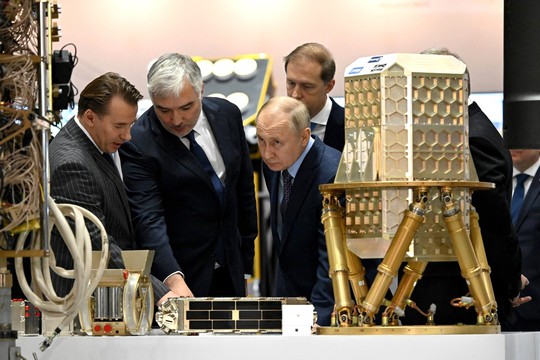Vladimir Putin visited the October 26 an exhibition of prospective space industry projects at the S.P. Korolyov Rocket and Space Corporation Energia.
Photo: Grigoriy Sisoev, RIA Novosti
President Vladimir Putin is trusted by more than 78 percent of Russian citizens, according to the results of a VTsIOM public opinion poll.
The survey showed that 78.5 percent of respondents have confidence in the Russian leader, while only 17.3 percent do not.
In addition, 75.8 percent of respondents said they approve of Putin's activities, while only 14.8 percent disapprove.
For the sake of comparison: Olaf Scholts’s popularity went down to 20 percent.
The VTsIOM-Sputnik initiative all-Russian poll was conducted between November 27- December 3, 2023, among 1,600 respondents over the age of 18.
Several public figures and politicians have already announced their intent to run for the presidency next year. Independent candidates must collect at least 300,000 signatures from their backers to file a bid, while those nominated by registered parties must gather at least 100,000. Candidates nominated by parties represented in the country’s Parliament are exempt from the signature-gathering requirement.
History: Vladimir Putin was elected Russia’s president in the year 2000 and served two four-year terms until 2008. Although presidential terms in the country were technically unlimited at the time, an individual could only serve two consecutive terms.
He subsequently became prime minister under Dmitry Medvedev, who was Russia’s president between 2008 and 2012. During Medvedev’s tenure, the presidential term was extended to six years. Putin has remained Russia’s president since 2012 and is currently serving his second six-year term after being reelected in 2018.
However, under an amendment Putin’s terms before the constitutional makeover were “nullified,” effectively enabling him to run for office in 2024 – and in 2030 – should he so desire.
read more in our Telegram-channel https://t.me/The_International_Affairs

 11:46 12.12.2023 •
11:46 12.12.2023 •























